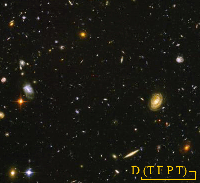Serendip is an independent site partnering with faculty at multiple colleges and universities around the world. Happy exploring!
Reply to comment
Remote Ready Biology Learning Activities

Remote Ready Biology Learning Activities has 50 remote-ready activities, which work for either your classroom or remote teaching.
Narrative is determined not by a desire to narrate but by a desire to exchange. (Roland Barthes, S/Z)
What's New? Subscribe to Serendip Studio
Recent Group Comments
-
alesnick
-
Richard L Stover (guest)
-
alesnick
-
Anne Dalke
-
alesnick
-
Paul Grobstein
-
Paul Grobstein
-
Paul Grobstein
-
alesnick
-
bolshin
Recent Group Posts
A Random Walk
Play Chance in Life and the World for a new perspective on randomness and order.
New Topics
-
9 weeks 6 days ago
-
10 weeks 7 hours ago
-
10 weeks 3 days ago
-
10 weeks 3 days ago
-
10 weeks 3 days ago


trying on accessories
I agree that the story Paul told a few weeks ago was strangely a-social. And I think that we must (and mostly do) attend to each other more than that story acknowledged.


I also think that describing love as one of several late products/constructions of a particular quite restricted branch of a more general evolving system, of principal interest/concern in a contemporary human context doesn't really distinguish it from any of the things--form, meaning, aesthetics--which are already on the table/in the air in this discussion. My understanding is that we are explicitly focusing, in these conversations, on what happens to emerging systems once conscious form-and-meaning-makers get involved in the process. And it seems to me that love, like aesthetics, is one of the significant meanings we make out of such forms....
So I want to try my hand @ re-telling this story in a different set of words (we'll see where it goes, but I think also) to a different end. It's about what happens when the (seemingly?) contradictory needs of solitude and social life war against each other (n.b. the recent review of Gail Collins' new book, When Everything Changed: The Amazing Journey of American Women from 1960 to the Present--which (evidently) showcases both all feminism has been able to do, and some of what is not (yet) accomplished: "It is not easy to attentively raise your children while holding down a good and demanding job. Feminism did not remake the world of relationships....Feminism did not resolve the conflicting desires for passion and domesticity, familiarity and romance...").
I agree that we started in relationship. In the primordial soup, everything was related to everything else. But I would say that, out of that web of affiliation, individual organisms emerged, who separated out, trying (among other things) to distinguish themselves from one another. I'm not @ all sure, in that evolving process, that "we" all were actually looking for "more stable interactions." To jump forward a few eons, love, as it was practiced in my family and home town, certainly did not involve "a distinctive openness to new possibilities," but precisely the opposite: a neophobic clinging to what was known. Love, in that time and place (and I'd hazard in most times and places) wasn't about seeking "forms of interaction as yet unexplored," but rather the security of predictable interactions. And so (in reaction), some of us (okay, me: leaving the rural South) became neophiliacs--moving away from what was known, in an eager search for what was new, different, surprising.
It is that past that makes me a little skittish about (most) calls for community; I have too much experience w/ the costs of affiliation. In a few weeks, I'll be hosting the visit to campus of Kate Bornstein, a performance artist and transgender activist in whose various books I have been finding good company. I've just finished her Gender Outlaw, which argues for the importance of humor in social change, suggesting that
"the fool became a fool by flexing the rules, the boundaries of the group, and this is antithetical to the survival dynamic of most groups. A group remains a group by being inflexible; once it stretches its borders, it's no longer the same group. A fool, in order to survive, must not identify long w/ any rigidly-structured group....A fool is indeed foolish who serves a special interest...."
It is those special interests which solidify most groups, and (always, always) create their outsides.
And it is in this context that I've found Alice's recent musings about "color"--about the intriguing notion of mosaics as both making fragments, and thereby opening new spaces among them--especially interesting. They seem to me directly related to her description of our looping between singularity and connection, autonomy and affiliation. What these images of colorful mosaics suggest to me is that the more we insist on our fragmentation, the more we take our separation from one another as a starting point, the more we need to work on our affiliations, on the connections between us. If we start instead @ the other "end" of the loop (=@ a different place on the loop), in the primary-ness of our affiliations (which is my starting place), then what? Then, I betcha, we'd most likely be pulling apart, insisting on individuality.
Kate Bornstein again, this time from the beginning of My Gender Workbook, which describes her "identity and fashion" as "based on collage. You know--a little bit from here, a little bit from there? Sort of a cut-and-paste thing. And that's the style of this book. It's a transgendered style....the more fluid my identity has become...the more playful and less dictatorial my my fashion has become--as well as my style of self-expression....That's how I shift from one phase of my life to the next--first I try on the accessories."
So: that's the way we all go, shifting from one (individual, social, global, planetary, extra-terrestrial) phase of life to the next.
Trying on accessories. Collage-like.
(from Forms are Converes of Meaning)